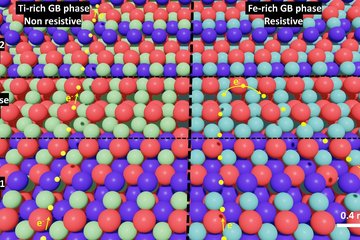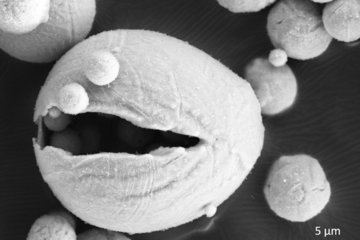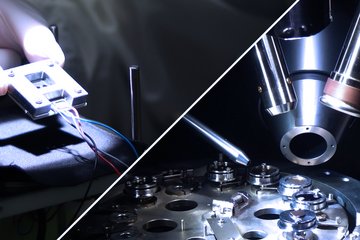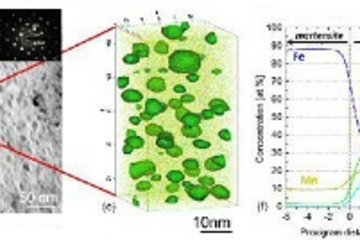All genres
21.
Poster
Investigations on the kinetics of single grains and grain boundaries by use of Scan-ning Electrochemical Microscopy (SECM). 6th International Symposium on Electrochemical Micro & Nanosystem Technologies, Bonn, Germany (2006)
22.
Poster
3D Scanning Setup for High Throughput Measurements. 6th International Symposium on Electrochemical Micro & Nanosystem Technologies, Bonn, Germany (2006)
23.
Poster
Investigations on anisotropy of nickelfree alloys with combined local and trace analysis. GDCh Jahrestagung 2005, Fachgruppe Angewandte Elektrochemie, Düsseldorf, Germany (2005)
24.
Poster
Korrosionsuntersuchungen auf einzelnen Körnern einer neuen Klasse ferritischer FeAlCr Leichtbaustähle. 79. AGEF Seminar - 25 Jahre Elektrochemie in Düsseldorf, Düsseldorf, Germany (2004)
25.
Poster
On the corrosion resistance of single grains of a new class of FeCrAl light weight ferritic steels. 5th International Symposium on Electrochemical Micro & Nanosystem Technologies, Tokyo, Japan (2004)
26.
Poster
Electrochemical and corrosion investigations on LIP-steel and austenitic model steels of similar composition. GDCH Jahrestagung 2003, Fachgruppe Angewandte Elektrochemie mit 8. Grundlagensymposium der GDCh, DECHEMA, DBG, München, Germany (2003)
27.
Thesis - PhD
Electrochemical Investigations on the Corrosion Properties of New Classes of Light Weight Steels. Dissertation, Ruhr-Universität-Bochum, Bochum, Germany (2008)











